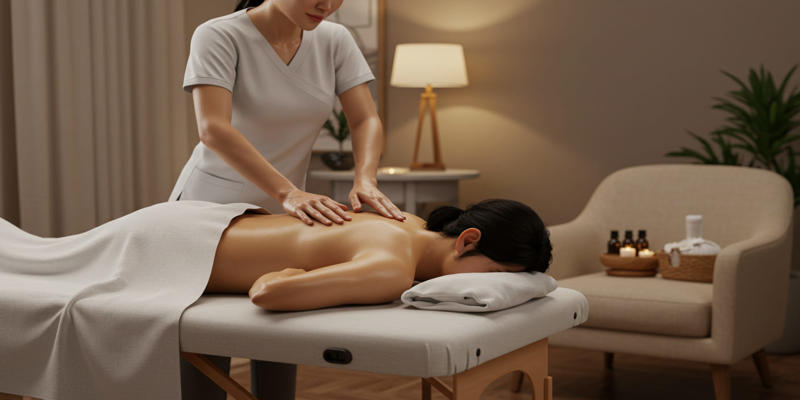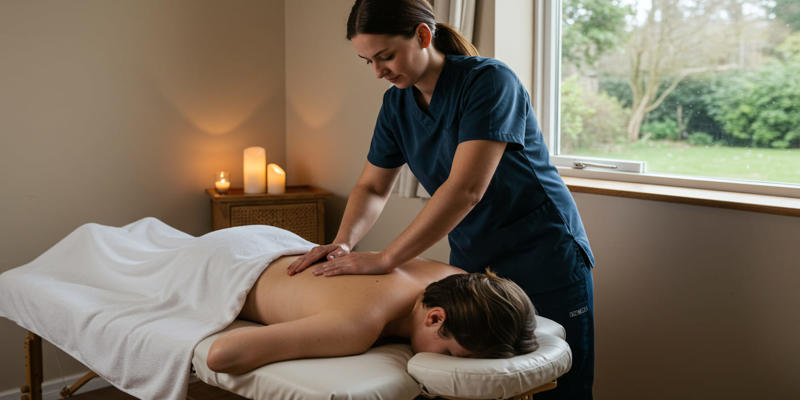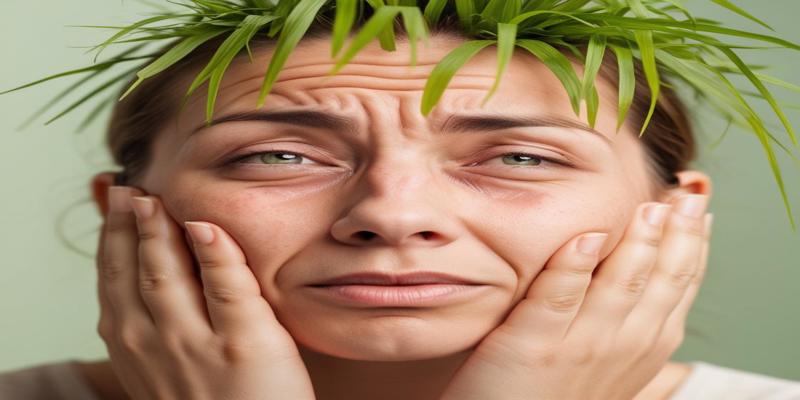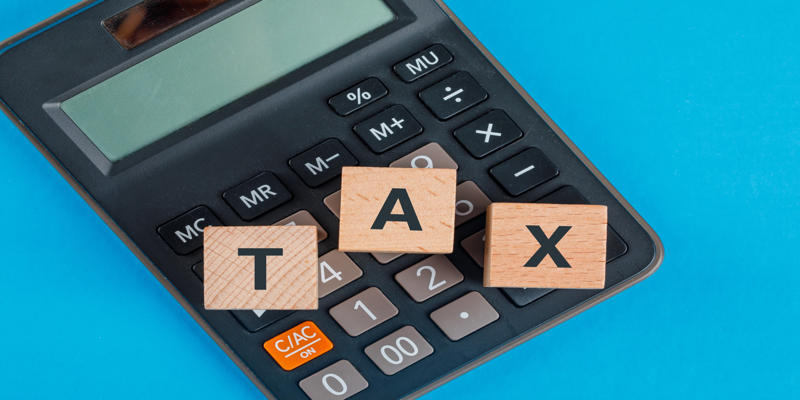Advertisement
Are you tense, stressed, or want to relax? Massage therapy could be just what the body and mind need. Massage has been used for thousands of years to maintain wellness and alleviate many physical and mental health concerns. This article will discuss the many evidence-based benefits of massage therapy, from reducing muscle tension and improving circulation to lowering stress levels and boosting your immune system.
 Massage therapy is one of the oldest forms of healing and has evolved into a very sophisticated form of complementary medicine. It essentially consists of manipulating soft tissue in the body to induce relaxation, pain relief, and general well-being. Knowing the basic concepts of massage therapy will help you appreciate its benefits and make appropriate choices in incorporating it into your wellness routine.
Massage therapy is one of the oldest forms of healing and has evolved into a very sophisticated form of complementary medicine. It essentially consists of manipulating soft tissue in the body to induce relaxation, pain relief, and general well-being. Knowing the basic concepts of massage therapy will help you appreciate its benefits and make appropriate choices in incorporating it into your wellness routine.
There are several massage techniques, all with their unique approach and benefits, including:
Massage therapies create physiological reactions. Pressure is applied to the muscles and soft tissues, stimulating blood circulation, lymph flow, and endorphin release. The body's cortisol levels are reduced to lower stress, and flexibility and ROM are increased.
Which is best for you depends on your needs, health goals, and personal preferences. Your health goals, medical conditions, and comfort with touch may also guide the type of massage that is best for you. Discuss your needs with a licensed massage therapist to determine your best approach.
 All these physiological benefits arising from massage therapy could amply contribute to our health and well-being. Massage impacts human physiological functioning at the soft tissue manipulation and compressive levels of practice. Quite apparently, such manipulations allow the entry of many positive changes in our physiological systems, including improved circulation.
All these physiological benefits arising from massage therapy could amply contribute to our health and well-being. Massage impacts human physiological functioning at the soft tissue manipulation and compressive levels of practice. Quite apparently, such manipulations allow the entry of many positive changes in our physiological systems, including improved circulation.
Massage is also quite effective and relaxes muscle tension, thus reducing chronic pain. Through kneading, stretching, and compression, massage releases tight muscles and knots in various ways. It might also be helpful in improving flexibility, reducing stiffness, and increasing range of motion.
It is also among the most vital in stimulating lymph, which is very important in removing toxins and other wastes from the body. Gentle manipulation of lymph nodes and vessels during massage is helpful in promoting immune systems and natural detoxification of the body.
Scientific studies have recognized that massage reduces stress hormones like cortisol in our system when applied regularly. Other benefits related to these reduced stress hormones include improved mood and quality of sleep, also improving in terms of their duration. Thereafter, massage probably increases endorphins, chemicals in nature that can easily be tagged as our native "feel-good" chemicals and, as such, contribute to sensations of relaxation and welfare.
One of the immediate, most striking effects massage therapy could have is the reduction of stress and the induction of relaxation. As tensions in your muscles are worked out, your body releases endorphins-natural mood elevator chemicals that help alleviate anxiety and create a sense of calm that may result in improved mental clarity and a more positive perspective on life.
The frequent process of massages can dramatically change your emotional state. This is because therapeutic touch during massages can trigger serotonin and dopamine production, which are associated with feelings of happiness and pleasure. An increase in the levels of this "feel-good" chemical helps fight off the symptoms of depression and mood disorders that keep the emotional state in balance.
Poor sleep is a problem one shares, and simultaneously, it is detrimental to the mental condition of an individual. These better sleep patterns are encouraged through therapy when a person relaxes, reducing physical tension that interferes with a good sleep condition. Improved sleep quality positively impacts cognitive functions, emotional stability, and overall mental well-being.
Massage also invites an individual to be in the body and with all the senses during a session. Mindfulness transported out of the massage table promotes full awareness of the self and helps connect the mind with the body throughout a person's daily life. Most importantly, this makes it easier to handle turbulent feelings with developed resilience against stress.
Massage is more than a form of relaxation; it may be an effective complementary resource for health maintenance and illness management. This modality should help alleviate symptoms and improve the quality of life of those affected by chronic illnesses and unending pain.
Massage therapy has been a relief for most people with chronic pain. From pain in the lower back to neck pain, even fibromyalgia, massages are relieving and make one mobile. Gentle manipulation of the soft tissues reduces muscular tension, increases blood flow, and releases endorphins, the body's natural painkillers.
Massage therapy is another alternative treatment that helps mentally unstable people. Gentle touches through massage can reduce cortisol, the hormone responsible for causing stress, and increase the generation of serotonin and dopamine hormones. This change in the rate of the hormone might result in a good mood, less anxiety, and improved sleep patterns.
Interestingly, massage therapy can be beneficial to your heart. Regular massage sessions have been related to lower blood pressure and an improvement in circulation. Simple stress reduction and relaxation through massage have indirectly affected cardiovascular health, hence lessening the risk of heart disease and stroke.
Though massage is not a cure for cancer, it goes a mile in improving the living standard of a cancer patient. It helps alleviate some of the treatment-related side effects, including but not limited to pain, fatigue, and nausea. Also, massage is emotionally supporting as it reduces anxiety and depression that are commonly associated with the diagnosis and treatment of cancer.
As you have seen, massage can provide everything from stress and anxiety reduction to pain relief and circulation improvement; it can be a valuable component in your general wellness program. Although much further research is still needed in many areas, the evidence is sometimes convincing in support of massage as an adjunct therapy to treat many conditions. Discuss integrating therapeutic massage into your health plan with your healthcare professional. Massage therapy can help with powers of relaxation, healing, and various general wellness points to help you feel your best and support the most extended life.
Advertisement

By Martina Wlison/Mar 18, 2025

By Gabrielle Bennett /Mar 01, 2025

By Susan Kelly/Feb 28, 2025

By Isabella Moss/Mar 18, 2025

By Darnell Malan/Feb 28, 2025

By Jennifer Redmond/Dec 13, 2024

By Celia Kreitner/Jan 11, 2025

By Sid Leonard/Feb 28, 2025

By Darnell Malan/Mar 17, 2025

By Celia Shatzman/Nov 06, 2024

By Alison Perry/Jan 20, 2025

By Nancy Miller/Jan 03, 2024